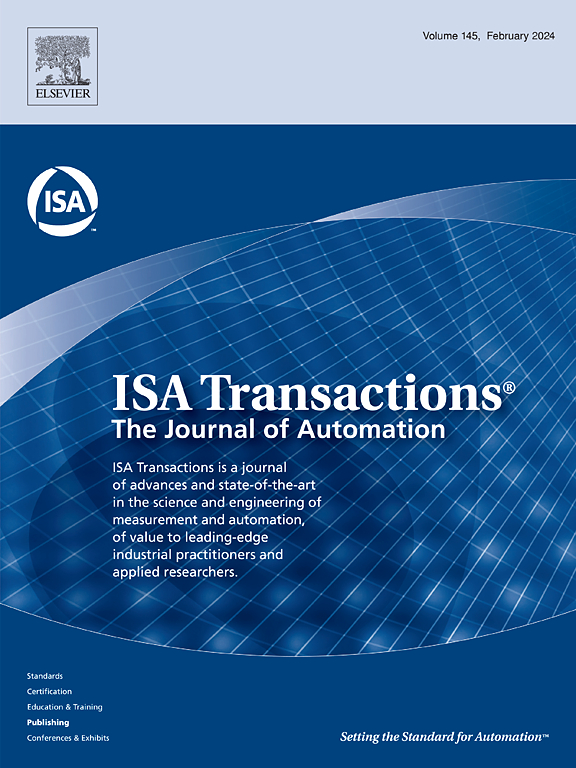基于超扭转扰动观测器的非定常稳定系统分数阶滑模协调控制器。
IF 6.5
2区 计算机科学
Q1 AUTOMATION & CONTROL SYSTEMS
引用次数: 0
摘要
为了提高核供汽系统在复杂时变工况和复合扰动下的控制性能、稳定性和可靠性,提出了一种包含双超扭转扰动观测器(stdo)的分数阶滑模协调控制策略。FOSMCC策略将分数阶控制和预定义时间理论与滑模控制相结合,并辅以双STDOs驱动的扰动前馈补偿环。这种控制框架提供了增强的控制性能保证,包括快速瞬态响应,高稳态精度和增强的抗干扰性。此外,利用Lyapunov的直接方法,从理论上证明了在开发的协调策略下,整个NSSS具有优越的预定义时间稳定性。最后,综合数值验证和对比研究表明,基于STDOs的FOSMCC策略显著优于最新的分数阶固定时间滑模控制器(FOFTSMC)和实际采用的协调控制器(PACC),具有更好的暂态/稳态控制响应和更强的抗干扰性。仿真结果表明,在存在复合扰动的情况下,所提出的FOSMCC策略使核电和水位的积分绝对控制误差比FOFTSMC分别降低89.37 %和87.67 %,比PACC分别降低99.97 %和99.99 %。本文章由计算机程序翻译,如有差异,请以英文原文为准。
Fractional-order sliding mode coordinated controller using super-twisting disturbance observer for an NSSS with predefined-time stability
This paper develops a fractional-order sliding mode coordinated control (FOSMCC) strategy incorporating dual super-twisting disturbance observers (STDOs) to enhance the control performance, stability, and reliability of the nuclear steam supply system (NSSS) under complex, time-varying operating conditions and compound disturbances. The FOSMCC strategy synthesizes the fractional-order control and predefined-time theory with sliding mode control, augmented by the disturbance feedforward compensation loop driven by dual STDOs. Such control framework provides enhanced control performance guarantees, including fast transient response, high steady-state precision, and reinforced disturbance rejection. Furthermore, by employing Lyapunov’s direct approach, it is theoretically demonstrated that the entire NSSS, under the developed coordinated strategy, achieves superior predefined-time stability. Finally, comprehensive numerical validation and comparative studies reveal that the developed FOSMCC strategy with STDOs significantly outperforms both the latest fractional-order fixed-time sliding mode controller (FOFTSMC) and the practically adopted coordinated controller (PACC), exhibiting better transient/steady-state control response and stronger robustness against disturbances. Simulation results validate that, in the presence of compound disturbances, the proposed FOSMCC strategy reduces the integral absolute control error of nuclear power and water level by 89.37 % and 87.67 %, respectively, compared to FOFTSMC, and by 99.97 % and 99.99 %, respectively, compared to PACC.
求助全文
通过发布文献求助,成功后即可免费获取论文全文。
去求助
来源期刊

ISA transactions
工程技术-工程:综合
CiteScore
11.70
自引率
12.30%
发文量
824
审稿时长
4.4 months
期刊介绍:
ISA Transactions serves as a platform for showcasing advancements in measurement and automation, catering to both industrial practitioners and applied researchers. It covers a wide array of topics within measurement, including sensors, signal processing, data analysis, and fault detection, supported by techniques such as artificial intelligence and communication systems. Automation topics encompass control strategies, modelling, system reliability, and maintenance, alongside optimization and human-machine interaction. The journal targets research and development professionals in control systems, process instrumentation, and automation from academia and industry.
 求助内容:
求助内容: 应助结果提醒方式:
应助结果提醒方式:


